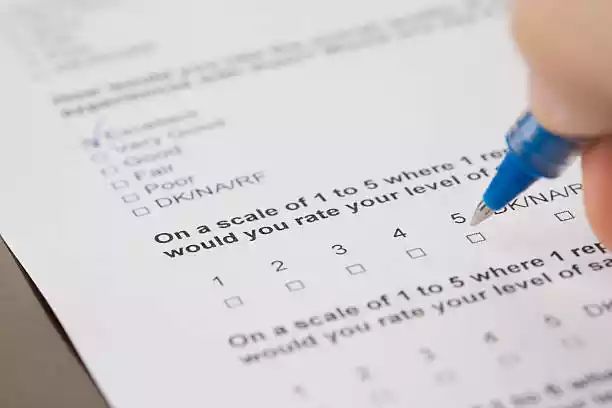How to Conclude an Essay: A Comprehensive Guide With Examples
Writing an essay involves more than just presenting ideas and arguments, it also requires a well-crafted conclusion that leaves a lasting impression on the reader.
A strong conclusion has the power to tie everything together, leave a final thought in the reader’s mind, and elevate the overall impact of the essay.
In this article, we will dive into the art of concluding an essay, exploring key strategies and providing examples to help you master this essential skill.
Table of Contents
In the sphere of essay writing, the conclusion serves as the final act, wrapping up the main ideas and leaving the reader with a sense of closure.
It is a vital component that should not be underestimated, as it holds the power to leave a lasting impression on the reader’s mind.
A well-written conclusion is not just a mere summary of the essay; it is an opportunity to reinforce key points, restate the thesis, and provide the reader with a final thought to ponder upon.
Key Components of an Effective Conclusion
A well-crafted conclusion encompasses several key components that contribute to its effectiveness. Let’s explore these components in detail:
- Summarizing the main points: A strong conclusion summarizes the main ideas discussed in the essay, providing a concise overview of the arguments presented.
- Restating the thesis statement: The conclusion offers an opportunity to restate the thesis statement, reminding the reader of the essay’s central argument and reinforcing its importance.
- Providing closure to the reader: A good conclusion provides closure by tying up loose ends and leaving the reader with a sense of satisfaction, knowing that they have reached the end of a well-crafted piece of writing.
- Call to action or final thought: In some cases, a conclusion may include a call to action, urging the reader to take further steps or reflecting on the broader implications of the essay’s topic.
Alternatively, it can leave the reader with a final thought to ponder upon, evoking a sense of contemplation.
Strategies for Writing a Strong Conclusion
Now that we understand the key components of an effective conclusion, let’s explore some strategies that can help you write a strong and impactful conclusion:
- Reflecting on the essay’s main ideas: Take a moment to reflect on the main ideas and arguments presented in the essay. Identify the most significant points and find a way to encapsulate them in your conclusion.
- Offering a new perspective or insight: A thought-provoking conclusion can offer a new perspective or insight, encouraging the reader to consider the topic from a different angle or providing them with a fresh takeaway.
- Addressing any unanswered questions: If there are any lingering questions or unresolved issues from the essay, the conclusion is an opportune moment to address them.
This shows the reader that you have considered various aspects of the topic and have a well-rounded understanding. - Using powerful language and rhetorical devices: To make your conclusion memorable, consider using powerful language and rhetorical devices such as metaphors, analogies, or vivid imagery.
These literary techniques can leave a lasting impression on the reader.
Examples of Effective Conclusions
To illustrate the strategies discussed above, let’s examine five examples of effective conclusions from different types of essays:
Example 1: Argumentative Essay
Topic: Should standardized testing be abolished in schools?
Conclusion: “The debate surrounding standardized testing in schools is a contentious one, with valid arguments on both sides. However, it is crucial to consider the potential drawbacks of relying solely on standardized tests to assess student learning. By embracing alternative assessment methods that take into account a holistic view of students’ abilities and talents, we can create a more comprehensive and equitable education system. It is time to prioritize a well-rounded education that fosters critical thinking, creativity, and problem-solving skills, beyond the constraints of standardized testing.”
Example 2: Persuasive Essay
Topic: The importance of recycling for a sustainable future
Conclusion: “As our planet faces unprecedented environmental challenges, the need for recycling has become more urgent than ever. By embracing recycling practices in our daily lives, we can reduce waste, conserve resources, and mitigate the impacts of climate change. Let us recognize our individual and collective responsibility to protect the environment for future generations. Together, through conscious choices and sustainable actions, we can build a greener and more sustainable future for our planet.”
Example 3: Expository Essay
Topic: The process of photosynthesis in plants
Conclusion: “The process of photosynthesis in plants is a remarkable example of nature’s ingenuity and the interconnectedness of living organisms. Through the absorption of sunlight, plants convert carbon dioxide into oxygen, playing a vital role in maintaining the Earth’s atmospheric balance. Understanding this intricate process helps us appreciate the significance of plants in sustaining life on our planet. Let us cherish and protect the green ecosystems that gift us with clean air, food, and a thriving environment.”
Example 4: Descriptive Essay
Topic: A bustling street market on a vibrant weekend
Conclusion: “As the sun sets on a vibrant weekend, the bustling street market exudes an atmosphere of energy and diversity. The colorful stalls, aromatic flavors, and lively chatter create an immersive sensory experience. Amidst the vibrant tapestry of cultures and the exchange of goods and stories, the street market becomes a melting pot of community and connection. It reminds us of the richness of human interaction and the beauty found in embracing the diversity that defines our shared humanity.”
Example 5: Narrative Essay
Topic: A life-changing travel adventure through the mountains
Conclusion: “As I stand atop the majestic mountain peak, the world below spreads out like a painting. This life-changing travel adventure has been a testament to the transformative power of exploration. From the physical challenges that tested my limits to the awe-inspiring beauty that filled my senses, every step of this journey has shaped my perspective and ignited a sense of wonder. As I descend from this lofty height, I carry with me a profound appreciation for the vastness of nature and the indomitable spirit within.”
Or
“Though my journey may have come to an end, the memories, and lessons I have gained will forever remain with me. Traveling has a way of broadening our perspectives, igniting our curiosity, and reminding us of our shared humanity. As I return home, I carry a renewed sense of wanderlust and a deeper appreciation for the diversity and beauty that exists in every corner of our world. I encourage everyone to embark on their own adventures, for it is through exploration that we truly discover ourselves.”
Common Mistakes to Avoid
While crafting a conclusion, it’s important to steer clear of common pitfalls that can diminish its impact. Here are some mistakes to avoid:
- Repeating information from the body paragraphs: The conclusion should not simply repeat what has already been stated in the body of the essay. Instead, it should synthesize and summarize the main points.
- Introducing new ideas or arguments: The conclusion is not the place to introduce new information or arguments. It should focus solely on wrapping up the essay and providing a final perspective on the topic.
- Ending abruptly without a proper conclusion: A conclusion should not end abruptly or leave the reader with a sense of incompleteness. It should provide a sense of closure and finality.
- Underestimating the importance of a conclusion: Some writers may rush through the conclusion, considering it a mere formality. However, a well-crafted conclusion can leave a lasting impression and elevate the overall quality of the essay.
Tips for Polishing the Conclusion
To ensure your conclusion is polished and impactful, consider implementing the following tips:
- Proofreading and editing: Take the time to carefully proofread and edit your conclusion. Check for any grammatical errors, clarity issues, or inconsistencies. You can use an online tool like Grammarly to speed up the process.
- Ensuring a smooth transition from the body paragraphs: The conclusion should smoothly transition from the body paragraphs. Make sure the flow is seamless and logical.
- Checking for coherence and logical flow: Ensure that your conclusion aligns with the overall argument and theme of your essay. It should tie everything together and provide a coherent ending.
- Seeking feedback from others: Consider sharing your conclusion with a trusted friend, teacher, or peer for feedback. They may provide valuable insights or suggestions for improvement.
Final Thought
In conclusion, mastering the art of concluding an essay is essential for creating a well-rounded and impactful piece of writing.
By summarizing the main points, restating the thesis, providing closure, and leaving the reader with a final thought or call to action, you can ensure that your conclusion resonates with your audience.
Avoid common mistakes, polish your conclusion, and remember that it is the last opportunity to leave a lasting impression on your reader.
FAQs
- Why is a conclusion important in an essay? A conclusion serves to wrap up the main ideas, leave a final impression, and provide a sense of closure to the essay. It reinforces the central argument and ensures that the reader retains key takeaways.
- Can I introduce new information in the conclusion? No, the conclusion should not introduce new information or arguments. Its purpose is to summarize and synthesize what has already been discussed in the essay.
- How long should a conclusion be? The length of a conclusion can vary depending on the essay’s overall length. However, it is generally recommended to keep it concise and to the point, avoiding unnecessary repetition or rambling.
- What if I’m struggling to come up with a strong conclusion? If you’re finding it challenging to craft a strong conclusion, revisit your essay’s main points and consider the broader implications of your topic. Reflect on the significance of your arguments and find a compelling way to tie them together.
- Is it necessary to restate the thesis statement in the conclusion? Restating the thesis statement in the conclusion is not mandatory, but it can help reinforce the main argument and provide a sense of closure. If you choose to restate it, ensure that it is presented in a fresh and meaningful way.




